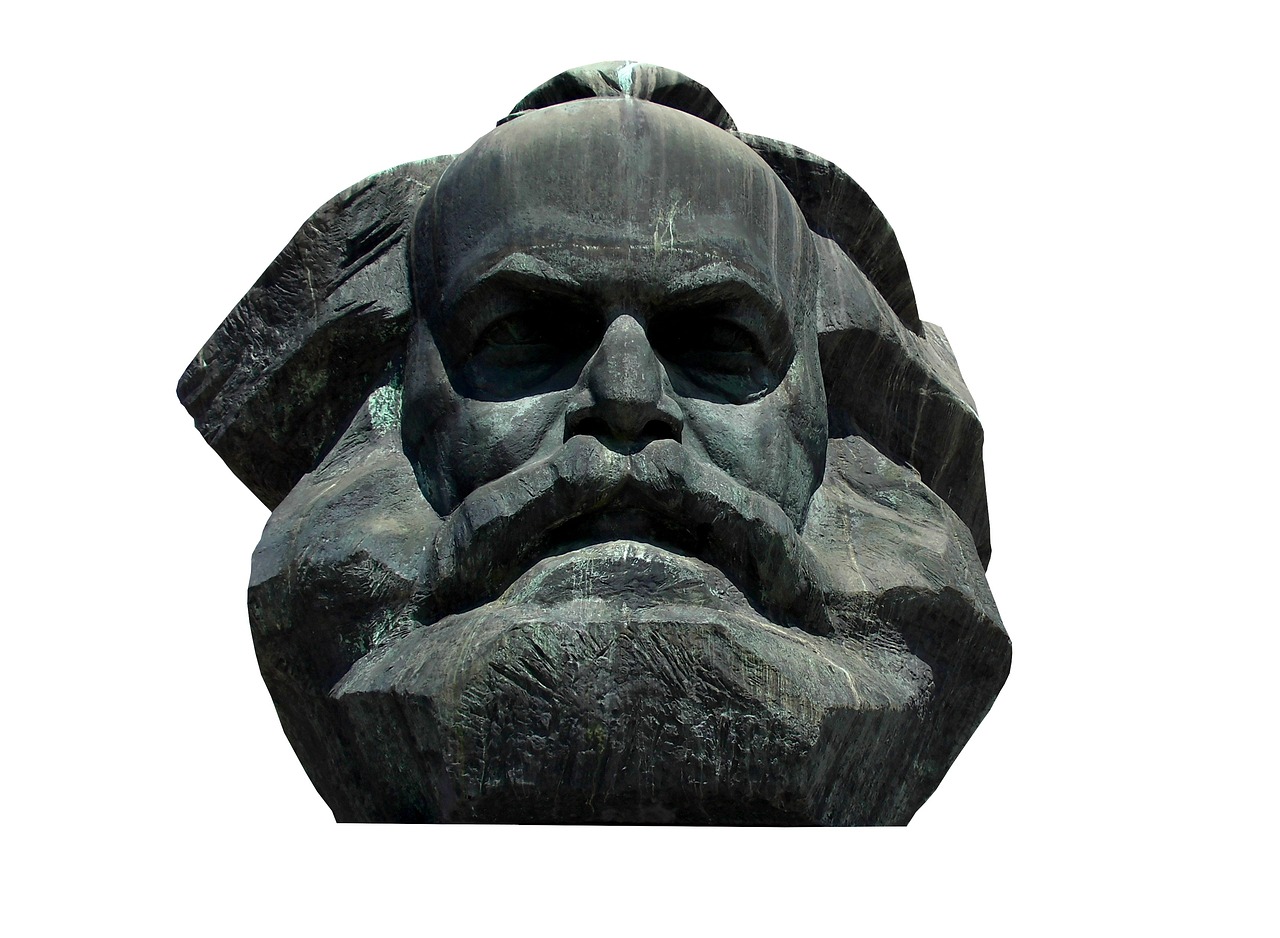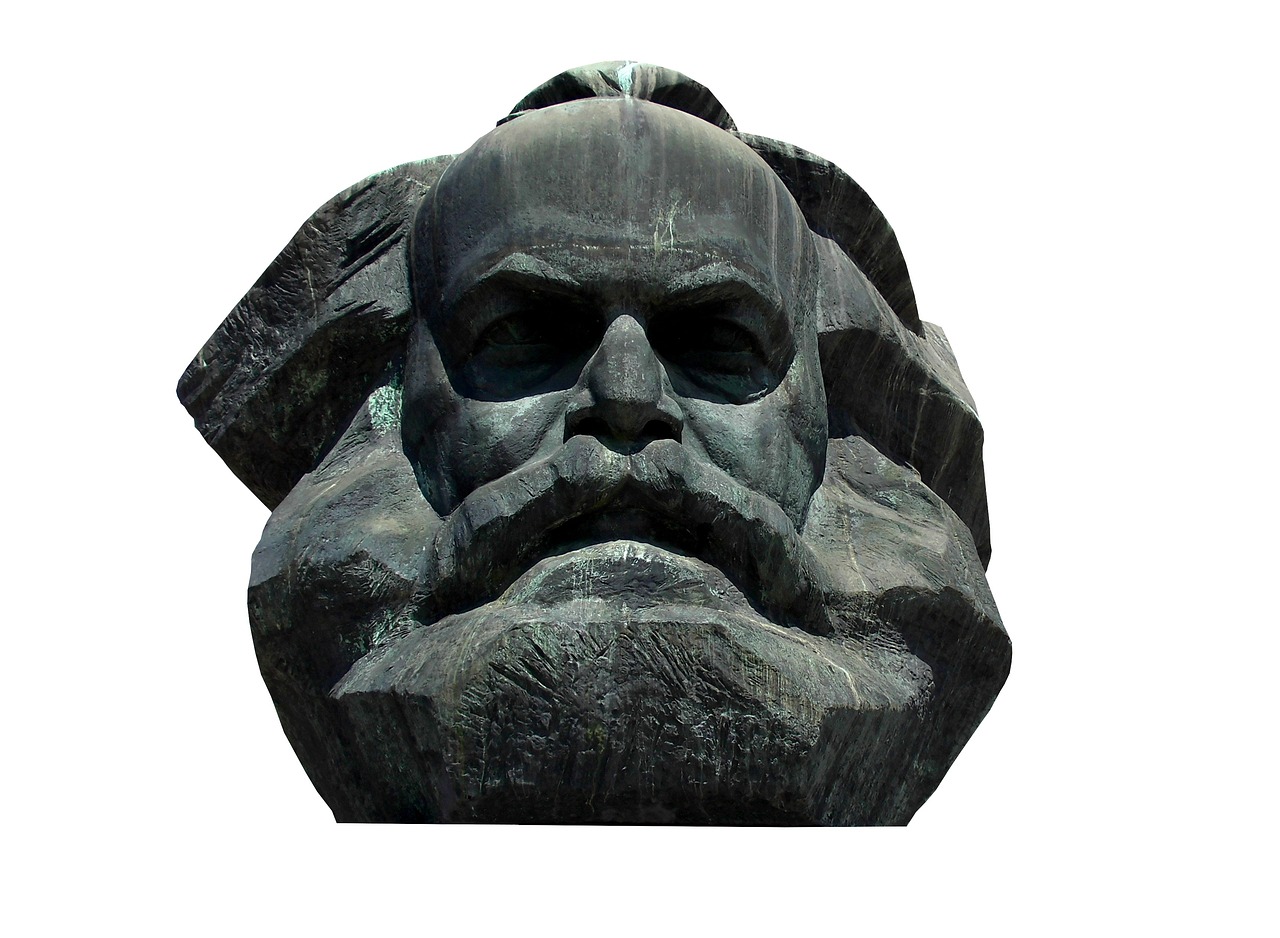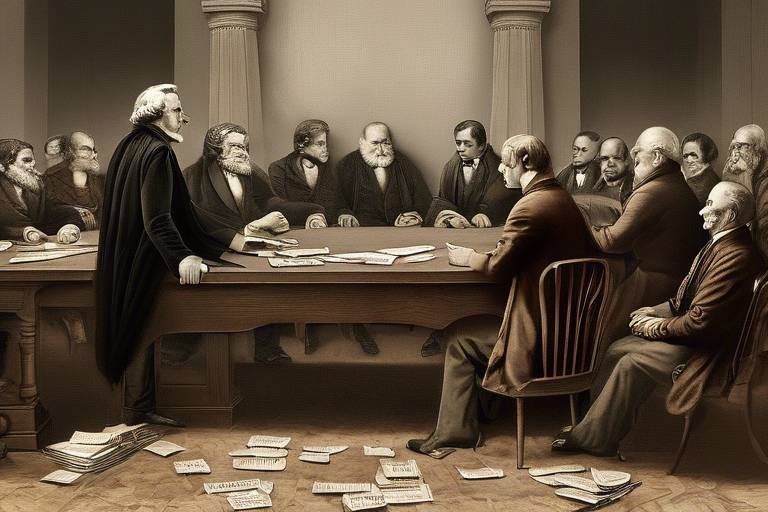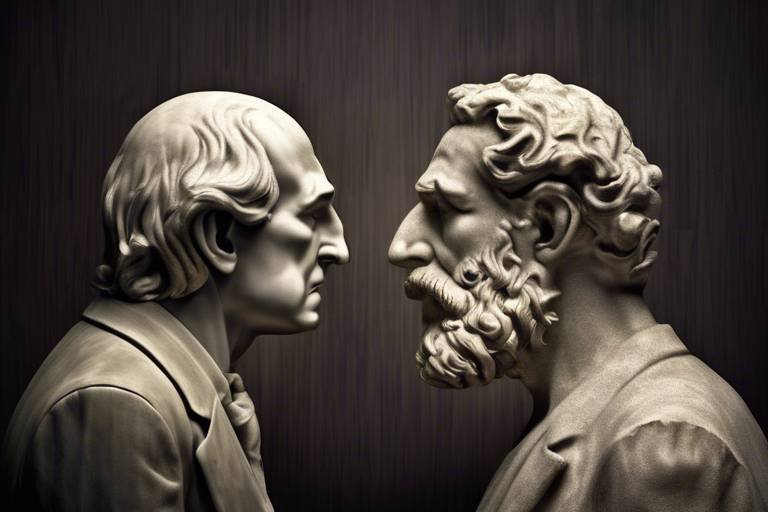Revisiting the Philosophy of Karl Marx
When we think about the world we live in today, it’s almost impossible to ignore the profound influence of Karl Marx. His philosophical ideas, which emerged in the 19th century, continue to resonate in contemporary discussions about economics, politics, and society. But why is this old philosopher still relevant? What can we learn from his critiques of capitalism and his vision for a more equitable world? In this article, we’ll take a deep dive into the essence of Marx’s philosophy, examining the historical context that shaped his thoughts, the core concepts of his theories, the critiques he faced, and ultimately, the legacy that he left behind. So, buckle up as we navigate through the intricate web of ideas that Marx spun, and discover how they can illuminate our understanding of today's challenges.
To truly grasp Marx's philosophy, we must first step back into the tumultuous socio-political landscape of the 19th century. Imagine a world where the Industrial Revolution was in full swing, transforming agrarian societies into bustling urban centers. This period was marked by stark contrasts: wealth was accumulating in the hands of a few, while the majority struggled in poverty. The rise of capitalism brought about significant changes in the way people lived and worked, which in turn sparked a sense of discontent among the working class.
Marx observed these conditions closely, and they profoundly influenced his thoughts on class struggle and social change. He saw the exploitation of labor as a fundamental flaw within the capitalist system, where the rich got richer at the expense of the poor. This backdrop of inequality and unrest was crucial in shaping his revolutionary ideas. Marx's writings were not merely theoretical; they were a response to the pressing issues of his time, aiming to inspire a movement towards social justice and equality.
At the heart of Marxism lie several core concepts that challenge our understanding of society and economics. These ideas serve as the foundation for Marx's critique of capitalism and his vision for a more just world. Let’s break down these essential components:
One of the cornerstones of Marx's philosophy is historical materialism. This concept posits that the material conditions of a society—its economic structure and class relations—primarily shape its social and political structures. In essence, Marx believed that to understand a society, we must look at its economic foundations. This perspective allows us to analyze history not just as a series of events, but as a dynamic interplay of economic forces and social relations.
Building on historical materialism, dialectical materialism introduces the idea of conflict and resolution as a driving force in societal development. According to Marx, societal progress occurs through a dialectical process where contradictions arise, leading to conflicts that ultimately result in change. This method of analysis emphasizes that history is not linear but rather a complex web of interrelated forces, constantly evolving through struggle and contradiction.
Perhaps the most famous of Marx's ideas is the concept of class struggle. He argued that history is fundamentally shaped by the conflict between different social classes, primarily the bourgeoisie (the ruling class) and the proletariat (the working class). This struggle is not just a historical phenomenon; it is ongoing and manifests in various forms today. Understanding class struggle helps us to analyze contemporary issues, such as inequality and workers' rights, through a Marxist lens.
Another key aspect of Marxism is the labor theory of value, which posits that the value of a commodity is determined by the socially necessary labor time required for its production. This theory challenges the capitalist notion of value, which is often based on supply and demand. By emphasizing labor as the source of value, Marx highlighted the exploitation inherent in capitalism, where workers are not compensated fairly for their contributions. This concept has profound implications for our understanding of capitalism and exploitation.
Despite its foundational role in political theory, Marxism has faced significant critiques over the years. Various perspectives, including those from liberal, socialist, and feminist scholars, have challenged Marx's ideas, arguing that they may not fully capture the complexities of modern society. Let’s explore some of these critiques.
One of the primary critiques is that Marx underestimated capitalism's adaptability and resilience. Critics argue that capitalism has evolved since Marx's time, incorporating elements that address some of the inequalities he highlighted. This section will delve into how capitalism has transformed and the relevance of Marx's critiques in today's economic context.
Feminist scholars have also challenged Marxist theory for its perceived neglect of gender issues. They argue that Marx's focus on class struggle overlooks the significant role that gender plays in social dynamics. This section will examine how feminist perspectives have reshaped and expanded Marxist analysis to include gender dynamics, highlighting the need for a more inclusive understanding of social justice.
Marx's ideas continue to influence various fields, including sociology, political science, and economics. His critiques of capitalism and visions for a more equitable society remain relevant in contemporary debates about inequality and social justice. As we reflect on his philosophical legacy, it's clear that Marx's thoughts offer valuable insights into the challenges we face today.
- What is Marxism? - Marxism is a socio-economic and political theory that critiques capitalism and advocates for a classless society.
- How does historical materialism differ from idealism? - Historical materialism focuses on material conditions as the primary influence on societal development, while idealism emphasizes ideas and consciousness.
- Why is class struggle important in Marxism? - Class struggle is central to Marxist theory as it explains the conflicts and tensions between different social classes that drive historical change.
- Have Marx's ideas been adapted in contemporary politics? - Yes, many contemporary movements draw from Marxist thought, particularly in discussions about social justice and economic inequality.

The Historical Context of Marx's Ideas
To truly grasp the depth and significance of Karl Marx's philosophical ideas, we must first step back in time and immerse ourselves in the socio-political landscape of the 19th century. This was a period marked by profound transformations that reshaped societies across Europe and beyond. The rise of industrialization was like a double-edged sword; it brought about incredible advancements in technology and productivity, but it also led to the exploitation of the working class, creating a stark divide between the bourgeoisie (the owners of production) and the proletariat (the working class).
As factories sprung up, cities became crowded with workers seeking employment, often under harsh conditions. The air was thick with smoke, and the clamor of machinery drowned out the cries for better wages and rights. This environment was ripe for Marx's observations on capitalism and class struggle. He viewed capitalism not merely as an economic system but as a historical phase that would inevitably lead to its own demise through the tensions it created.
Marx was influenced by the philosophical currents of his time, particularly the works of Georg Wilhelm Friedrich Hegel and Friedrich Engels. Hegel's dialectical method, which emphasized the process of thesis-antithesis-synthesis, resonated with Marx, who adapted it to his analysis of material conditions. Engels, a close collaborator, helped to refine Marx's ideas, providing a practical perspective on the struggles faced by the working class.
Moreover, the political revolutions of the era, such as the French Revolution, showcased the potential for social change and the power of the masses. These events served as a backdrop for Marx's writings, where he argued that the oppressed would rise against their oppressors, a theme that echoes throughout his works. The contradictions of capitalism, he believed, would lead to a revolutionary consciousness among the proletariat, igniting a struggle for liberation.
In addition to industrialization and revolution, the intellectual climate of the 19th century was also significant. The emergence of socialism and other political ideologies provided a fertile ground for Marx's thoughts to germinate. The discontent among workers and the rise of labor movements highlighted the urgent need for reform and justice. Marx's ideas were not developed in isolation; they were a response to the pressing issues of his time, aiming to offer a scientific analysis of society that could guide the working class toward emancipation.
In summary, understanding the historical context of Marx's ideas is crucial for appreciating their relevance today. The struggles, conflicts, and transformations of the 19th century shaped his philosophy, making it a powerful critique of capitalism that resonates in contemporary discussions about inequality and social justice. As we move forward in this exploration of Marxism, we will see how these foundational ideas continue to influence modern thought and activism.

Core Concepts of Marxism
At the heart of Marxism lies a set of profound ideas that challenge the very foundations of capitalism and social structures. Understanding these core concepts is essential for grasping how Marx viewed the world and the potential for change within it. The three pillars of Marxist thought include historical materialism, class struggle, and the labor theory of value. Each of these concepts interlinks to form a cohesive critique of capitalist society and its inherent inequalities.
Historical materialism is the lens through which Marx analyzed history, asserting that the material conditions of society—such as the means of production and economic relationships—are the primary drivers of historical change. In simpler terms, it suggests that how we produce goods and services shapes our social structures, ideologies, and even our consciousness. This perspective shifts the focus from abstract ideas to tangible conditions, emphasizing that real-world struggles and developments stem from economic realities. For instance, the transition from feudalism to capitalism was not merely a shift in ideas but a transformation rooted in the changing methods of production and class relations.
Building on historical materialism, dialectical materialism introduces the concept of dialectics, which emphasizes the importance of conflict and contradiction in societal development. This idea posits that progress arises from the clash of opposing forces—think of it as a tug-of-war in which the struggle leads to a new understanding or social order. Marx believed that societal change is not linear; instead, it involves a series of contradictions that must be resolved. For example, the conflict between the bourgeoisie (the capitalist class) and the proletariat (the working class) is seen as a driving force for revolutionary change, ultimately leading to a classless society.
Class struggle is arguably the most recognized aspect of Marxism. Marx famously stated that "the history of all hitherto existing society is the history of class struggles." This assertion highlights the ongoing conflict between different social classes, primarily the oppressors and the oppressed. The dynamics of class struggle manifest in various forms, from economic exploitation to political oppression. In contemporary society, the struggle continues, as workers fight for better wages and conditions against the interests of capital owners. The implications of class struggle extend beyond economics; they touch upon issues of political power, social justice, and human rights, making it a vital concept in understanding societal evolution.
The labor theory of value is another cornerstone of Marxist economics, asserting that the value of a commodity is determined by the amount of socially necessary labor time required for its production. This idea directly challenges the capitalist notion of value, which often hinges on supply and demand. According to Marx, when workers produce goods, they infuse these items with value through their labor. However, in a capitalist system, the owners of production extract surplus value from workers, leading to exploitation. This relationship creates inherent tensions within capitalism, as the pursuit of profit often comes at the expense of laborers' well-being. Understanding this theory is crucial for analyzing the economic inequalities that persist in modern society.
In summary, the core concepts of Marxism—historical materialism, class struggle, and the labor theory of value—offer a comprehensive framework for critiquing capitalism and understanding social dynamics. These ideas not only provide insight into the past but also serve as a guide for examining contemporary issues of inequality and exploitation. As we delve deeper into the critiques of Marxism, it becomes evident how these foundational concepts continue to spark debate and inspire movements for social change.

Historical Materialism
is a cornerstone of Marxist theory, positing that the material conditions of a society—its economic base—are the primary drivers of its social structure and development. This perspective argues that human societies progress through a series of stages, each defined by the mode of production and the relationships that arise from it. In simpler terms, it’s like saying that the way we produce goods and services shapes everything else in our lives, from our politics to our culture. Imagine a tree; the roots represent the economic base, while the branches symbolize the various aspects of society that grow from it. If the roots are weak or unhealthy, the tree cannot thrive.
Marx believed that history is not a random series of events but rather a dynamic process shaped by the conflicts between different classes. At the heart of this theory is the idea that the dominant economic class will always seek to maintain its position, often at the expense of the working class. This struggle is not just a historical footnote; it is a fundamental aspect of human existence. For instance, consider the ongoing debates about wealth inequality today. These discussions echo Marx's insights, demonstrating that the conflict between the bourgeoisie (the owners of capital) and the proletariat (the working class) continues to resonate in modern society.
To better understand historical materialism, it’s helpful to look at its key components:
- Material Conditions: These include the means of production, technology, and resources available in a society.
- Social Relations: The relationships between different classes and groups within society, shaped by economic conditions.
- Historical Progression: The belief that societies evolve through distinct stages, each characterized by specific economic systems.
By analyzing history through this lens, we can see how economic factors have influenced significant social changes. For example, the transition from feudalism to capitalism was not just a change in how goods were produced; it was a profound transformation that altered class structures, political power, and even cultural norms. In this way, historical materialism provides a framework for understanding not just the past but also the present and future of societal development.
Moreover, historical materialism encourages us to critically examine the structures that govern our lives. It challenges us to ask questions like: What are the underlying economic forces driving current social issues? How do these forces shape our experiences and opportunities? By engaging with these questions, we can begin to see the world more clearly and understand the roots of inequality and conflict.
In conclusion, historical materialism is not merely an academic concept; it is a powerful tool for analyzing the complex web of relationships that define our societies. By recognizing the importance of material conditions in shaping social realities, we can better understand the ongoing struggles for justice and equality that continue to unfold around us.
Q1: What is the main idea of historical materialism?
A1: The main idea of historical materialism is that the material conditions of a society, particularly its economic base, shape its social structures and development.
Q2: How does historical materialism relate to class struggle?
A2: Historical materialism emphasizes that the conflict between different social classes, primarily the bourgeoisie and the proletariat, is a driving force in societal development and change.
Q3: Can historical materialism be applied to contemporary issues?
A3: Yes, historical materialism can be applied to contemporary issues by analyzing how economic factors influence social inequalities and conflicts today.

Dialectical Materialism
is a pivotal concept in Marxist theory that deepens our understanding of societal development by integrating the principles of dialectics into historical materialism. At its core, dialectical materialism emphasizes that reality is not static but rather a dynamic interplay of conflicting forces. Imagine a constantly evolving dance where each step taken by one partner influences the movements of the other. This metaphor illustrates how societal changes are driven by contradictions and the struggle between opposing forces.
The dialectical method, which originated with Hegel, posits that progress arises from the resolution of contradictions. In a Marxist context, this means that societal advancements often emerge from the clash between different social classes, ideologies, and interests. For instance, consider the historical conflicts between the bourgeoisie and the proletariat. These two classes represent opposing forces in the capitalist system; the bourgeoisie seeks to maintain their power and wealth, while the proletariat strives for liberation and equitable conditions. Their struggle is not just a battle of wills but a fundamental aspect of societal evolution.
Dialectical materialism also argues that material conditions—such as economic structures and technological advancements—shape human consciousness and societal norms. This perspective challenges the notion that ideas alone drive social change. Instead, it posits that our understanding of the world is influenced by the material realities we inhabit. For example, the rise of industrialization transformed not only the economy but also the way people viewed labor, community, and social relations.
One of the key implications of dialectical materialism is its rejection of a linear view of history. Rather than seeing history as a straightforward progression towards a predetermined endpoint, dialectical materialism promotes the idea of history as a complex web of interrelated events and conflicts. This understanding allows for a more nuanced analysis of social transformations, acknowledging that setbacks and contradictions are integral to progress.
To illustrate these concepts further, consider the following table that outlines the fundamental differences between historical materialism and dialectical materialism:
| Aspect | Historical Materialism | Dialectical Materialism |
|---|---|---|
| Focus | Material conditions and economic structures | Interplay of contradictions and conflicts |
| View of History | Linear progression | Dynamic and non-linear |
| Role of Ideas | Secondary to material conditions | Emerges from the conflict of material conditions |
| Change | Gradual evolution | Revolutionary transformations through conflict |
In conclusion, dialectical materialism provides a robust framework for understanding the complexities of societal change. By highlighting the importance of contradictions and the material conditions that shape human experiences, it invites us to reconsider how we view history and social dynamics. This lens is not only relevant for analyzing past events but also for interpreting contemporary issues, making it an essential component of Marxist thought.
- What is dialectical materialism? Dialectical materialism is a Marxist framework that combines dialectical reasoning with materialist philosophy, emphasizing the dynamic relationships between conflicting forces in societal development.
- How does dialectical materialism differ from historical materialism? While historical materialism focuses on material conditions as the primary influence on society, dialectical materialism incorporates the idea of conflict and resolution of contradictions as central to understanding change.
- Why is dialectical materialism important today? It provides a critical lens for analyzing social issues, highlighting the interplay of economic structures and class struggles that continue to shape our world.

Class Struggle
The concept of is at the heart of Marx's philosophy, serving as a lens through which we can understand the evolution of societies and the dynamics of power. At its core, class struggle refers to the ongoing conflict between different social classes, primarily between the bourgeoisie (the ruling class who own the means of production) and the proletariat (the working class who sell their labor). This conflict is not merely a historical footnote; it is a driving force behind social change and the development of economic systems.
Marx argued that history is essentially a record of these struggles, where each class seeks to advance its own interests, often at the expense of the other. For instance, consider the Industrial Revolution, a period marked by significant economic transformation. During this time, the bourgeoisie amassed wealth and power, while the proletariat faced harsh working conditions and exploitation. This stark contrast created a fertile ground for conflict, leading to labor movements and calls for social reform. It's like a game of tug-of-war, where each side pulls with all its might, trying to gain ground while the other resists.
The implications of class struggle extend beyond economic conditions; they touch on issues of social justice and equality. As the proletariat becomes more aware of their exploitation, they are likely to mobilize for their rights, demanding better wages, working conditions, and ultimately, a fairer distribution of wealth. This mobilization can lead to significant societal shifts, as seen in various labor movements throughout history. The key takeaway here is that class struggle is not just about economic disparities; it encompasses the quest for dignity, respect, and recognition as well.
To illustrate the significance of class struggle in a contemporary context, consider the following table that outlines key events in labor history:
| Year | Event | Impact |
|---|---|---|
| 1886 | Haymarket Affair | Raised awareness of labor rights and led to the establishment of Labor Day. |
| 1935 | National Labor Relations Act | Strengthened workers' rights to unionize and engage in collective bargaining. |
| 1960s | Civil Rights Movement | Highlighted the intersection of race and class struggles in the quest for equality. |
As we navigate the complexities of modern society, the concept of class struggle remains relevant. It encourages us to ask critical questions about the distribution of resources and power. Are we perpetuating systems that favor the few at the expense of the many? How do we address the inequalities that persist in our communities? These questions are not just academic; they are essential to fostering a society that values equity and justice.
In conclusion, class struggle is more than a theoretical construct; it is a real and powerful force that shapes our world. Understanding this concept allows us to engage with the ongoing debates about capitalism, labor rights, and social justice. As we reflect on Marx's insights, we must also consider our role in this struggle and how we can contribute to a more equitable future.
- What is class struggle?
Class struggle refers to the conflict between different social classes, primarily the bourgeoisie and the proletariat, regarding their interests and rights. - How does class struggle influence society?
Class struggle drives social change, highlighting issues of inequality and prompting movements for workers' rights and social justice. - Is class struggle still relevant today?
Yes, class struggle remains relevant as it informs current discussions about economic disparity, labor rights, and social equity.

Labor Theory of Value
The is one of the cornerstones of Marxist economics and serves as a crucial framework for understanding how value is created and distributed in a capitalist society. At its core, this theory posits that the value of a commodity is determined by the amount of socially necessary labor time required for its production. In simpler terms, the more labor that goes into making something, the more value it holds. This idea challenges the conventional notion that value is determined solely by supply and demand, shedding light on the intricate relationship between labor and capital.
To illustrate this concept, consider the production of a simple chair. If it takes ten hours of labor to craft a chair using high-quality materials, the value of that chair is not just based on how much someone is willing to pay for it, but rather on the labor time invested in its creation. In a capitalist system, this often leads to a disconnect where the laborers—those who create the chair—receive a fraction of the value they produce, while the owners of the means of production reap the majority of the profits. This fundamental inequality is a critical aspect of Marx's critique of capitalism.
Moreover, the Labor Theory of Value highlights the concept of exploitation. In a capitalist economy, the difference between the value produced by labor and the wages paid to laborers is what Marx referred to as surplus value. This surplus value is the source of profit for capitalists, and it underscores a systemic issue: workers are not compensated fairly for their contributions. As a result, the wealth generated by labor tends to accumulate in the hands of a few, perpetuating cycles of inequality and class struggle.
Understanding the Labor Theory of Value is essential for grasping Marx's broader critique of capitalism. It invites us to question not just how value is determined, but also who benefits from the labor of the many. As we navigate today's economic landscape, where gig economies and precarious work are becoming increasingly common, revisiting this theory offers valuable insights into the ongoing debates about labor rights and economic justice.
In conclusion, the Labor Theory of Value remains a relevant and thought-provoking concept in contemporary discussions about economics and social justice. It compels us to reconsider the foundations of our economic systems and the ethical implications of how we value labor in society.
- What is the Labor Theory of Value?
The Labor Theory of Value asserts that the value of a commodity is determined by the amount of socially necessary labor time required for its production.
- How does the Labor Theory of Value relate to exploitation?
It highlights the disparity between the value created by labor and the wages paid to workers, which leads to surplus value for capitalists and exploitation of laborers.
- Is the Labor Theory of Value still relevant today?
Yes, it remains a crucial framework for understanding economic inequality and labor rights in contemporary society.

Critiques of Marxism
The philosophy of Karl Marx has sparked a plethora of debates and critiques since its inception. Critics from various backgrounds have questioned the validity and applicability of Marxist ideas, often pointing to the complexities of modern society and the evolution of capitalism. One of the most prominent critiques comes from liberal economists who argue that Marx underestimated capitalism's inherent adaptability and resilience. They suggest that rather than facing inevitable collapse, capitalism has shown an extraordinary capacity to evolve, incorporating elements of social welfare and regulation that Marx did not foresee.
For instance, the rise of mixed economies, which blend capitalist and socialist principles, illustrates how capitalist systems have adapted to include social safety nets and regulatory frameworks. This adaptability raises questions about the determinism inherent in Marx's predictions of class struggle and revolution. Critics argue that Marx's historical materialism may not fully account for the complexities of human agency and the role of culture, politics, and individual choice in shaping economic systems.
Moreover, feminist critiques of Marxism have emerged, highlighting a significant oversight in Marx's analysis: the role of gender in class struggle. Feminist scholars argue that Marx's focus on class dynamics often neglects the intersectionality of gender and class, leading to an incomplete understanding of social oppression. They contend that the traditional Marxist framework fails to address the ways in which capitalism exploits not only labor but also gendered identities. This critique has prompted a re-evaluation of Marxist theory, pushing for a more inclusive analysis that considers both class and gender dynamics.
Another significant critique arises from postmodern perspectives, which challenge the notion of a singular historical narrative as proposed by Marx. Postmodernists argue that Marx's framework is overly simplistic and reductionist, failing to capture the diversity of experiences and identities within society. They advocate for a more pluralistic approach that recognizes the multiplicity of social struggles, including those based on race, gender, and sexuality. This critique encourages a broader interpretation of social justice that moves beyond traditional Marxist boundaries.
In summary, while Marx's ideas continue to resonate, they are not without their challenges. The critiques from various ideological perspectives reveal the complexities of societal dynamics and the need for a nuanced understanding of class, gender, and power structures. As we navigate contemporary issues of inequality and social justice, engaging with these critiques is essential for a comprehensive analysis of Marxism's relevance today.
- What are the main critiques of Marxism? Critics argue that Marx underestimated capitalism's adaptability, neglected gender dynamics, and proposed an overly simplistic historical narrative.
- How have feminist scholars influenced Marxist theory? Feminist critiques have expanded Marxist analysis to include gender dynamics, emphasizing the intersectionality of class and gender oppression.
- Is Marxism still relevant today? Yes, Marxism continues to influence discussions on inequality and social justice, though it must be evaluated alongside contemporary critiques.

Marxism and Capitalism
When we think about Marxism and its relationship with capitalism, it’s like looking at two sides of the same coin—constantly in conflict yet undeniably intertwined. Critics often argue that Marx underestimated capitalism's ability to adapt and evolve. After all, capitalism has shown a remarkable capacity to reinvent itself, surviving economic crises and social upheavals that would have left many systems in ruins. This adaptability raises a compelling question: how relevant are Marx's critiques of capitalism in today’s world?
To understand this dynamic, we must first recognize that capitalism, as described by Marx, is not merely an economic system; it's a complex social structure characterized by the commodification of labor and the pursuit of profit. In Marx's time, the Industrial Revolution was in full swing, fundamentally altering the landscape of work and society. Fast forward to today, and we see that capitalism has morphed into various forms, including neoliberalism and digital capitalism. Each of these iterations presents new challenges and contradictions that echo Marx's original critiques.
One of the most striking aspects of contemporary capitalism is its ability to incorporate elements of social welfare and corporate responsibility, which Marx might have viewed as attempts to placate the working class. For instance, many companies now engage in corporate social responsibility (CSR) initiatives, ostensibly to address social issues while simultaneously enhancing their brand image. This raises an intriguing dilemma: are these efforts genuine attempts to create a more equitable society, or are they simply new strategies for maintaining the status quo?
Moreover, the rise of technology has introduced new layers of complexity to the capitalist framework. The gig economy, characterized by short-term contracts and freelance work, has transformed traditional employment relationships. While this shift offers flexibility and autonomy for some, it also raises concerns about job security and worker exploitation—issues that Marx was deeply concerned about. The paradox here is that while technology can enhance productivity and efficiency, it can also exacerbate inequality, leading to a new class of workers who are marginalized and undervalued.
To illustrate this ongoing tension, consider the following table that outlines key differences between Marx's view of capitalism and its modern-day manifestations:
| Aspect | Marx's View | Modern Capitalism |
|---|---|---|
| Labor Relations | Exploitation of the proletariat | Gig economy and precarious work |
| Wealth Distribution | Concentration of wealth among the bourgeoisie | Rising inequality and wealth gaps |
| Role of Technology | Tool for capitalist exploitation | Driver of productivity and new class dynamics |
As we reflect on these complexities, it becomes clear that Marx's insights remain strikingly relevant in analyzing the modern capitalist landscape. His emphasis on the inherent contradictions within capitalism serves as a valuable lens through which we can examine current economic and social issues. The question remains: can capitalism evolve to address the inequalities it perpetuates, or are we destined to repeat the cycles of exploitation and conflict that Marx so vividly described?
- What is the main critique of capitalism according to Marx? Marx argued that capitalism inherently leads to the exploitation of the working class, as the bourgeoisie profit from the labor of the proletariat.
- How has capitalism changed since Marx's time? Capitalism has evolved to include various forms such as neoliberalism and digital capitalism, adapting to new technologies and social dynamics.
- Are there modern examples of Marx's theories in action? Yes, issues like income inequality, gig economy exploitation, and corporate social responsibility initiatives can be analyzed through a Marxist lens.

Feminist Critiques of Marxism
Feminist critiques of Marxism emerge from a profound concern that traditional Marxist theory, while robust in its analysis of class struggle, often neglects the intricate dynamics of gender and the unique experiences of women. Feminists argue that Marx's focus on class as the primary axis of oppression overlooks how gender intersects with class, race, and other social categories to shape women's lives. This oversight has led to a call for a more nuanced understanding of social dynamics that includes the role of patriarchy alongside capitalism.
One central critique is that Marxist theory, in its classical form, tends to portray women primarily as workers or mothers, thus reducing their identities to economic roles. Feminists assert that this perspective fails to acknowledge women's agency and the diverse ways in which they contribute to society beyond labor. For instance, the unpaid labor women perform in the household and community is often invisible in Marxist analysis, despite being crucial for the functioning of the capitalist system.
Moreover, feminist scholars have pointed out that the concept of 'class struggle' does not adequately capture the complexities of women's oppression. They argue that the struggles women face are not solely economic but also deeply rooted in cultural and social norms. This has led to the development of feminist Marxism, which seeks to integrate feminist theory with Marxist principles, creating a more holistic approach to understanding oppression.
To illustrate the differences between traditional Marxism and feminist critiques, consider the following table:
| Aspect | Traditional Marxism | Feminist Critique |
|---|---|---|
| Focus of Oppression | Class struggle | Intersection of class, gender, and race |
| Role of Women | Workers and mothers | Agents with diverse identities and roles |
| Labor Analysis | Emphasis on paid labor | Recognition of unpaid labor and domestic work |
| Social Dynamics | Economic structures | Cultural and social norms |
Feminist theorists also challenge the notion that class struggle alone can lead to women's liberation. They argue that without addressing patriarchal structures and gender inequalities directly, the promise of a classless society remains incomplete. This has led to a rich dialogue between feminist and Marxist scholars, fostering a deeper understanding of how to combat oppression in all its forms.
In conclusion, feminist critiques of Marxism not only highlight the limitations of traditional Marxist thought but also enrich it by introducing essential considerations of gender. This dialogue continues to evolve, pushing for a more inclusive framework that recognizes the multifaceted nature of oppression in contemporary society.
- What is the main focus of feminist critiques of Marxism?
Feminist critiques primarily focus on the neglect of gender dynamics in traditional Marxist theory, arguing that it fails to account for the intersection of class and gender oppression. - How do feminist scholars integrate their perspectives with Marxism?
Feminist scholars integrate their perspectives by developing feminist Marxism, which combines insights from both theories to address the complexities of oppression. - Why is unpaid labor significant in feminist critiques?
Unpaid labor is significant because it constitutes a large part of women's contributions to the economy and society, yet it remains largely unrecognized in traditional Marxist analyses.

The Legacy of Marx's Philosophy
Marx's philosophy has left an indelible mark on various disciplines, influencing not just economics but also sociology, political science, and cultural studies. His ideas resonate with contemporary discussions about inequality and social justice, making them remarkably relevant even in today's world. In an age where the gap between the rich and the poor continues to widen, Marx's critique of capitalism serves as a lens through which we can examine the structural inequalities that persist. Think about it: how many times have you heard the phrase "the rich get richer while the poor get poorer"? This isn't just a catchy slogan; it's a reflection of the very class struggles Marx elucidated over a century ago.
One of the most significant aspects of Marx's legacy is his ability to inspire movements aimed at social change. From labor rights to anti-capitalist protests, his theories have fueled countless revolutions and reformations across the globe. For instance, the rise of labor unions in the late 19th and early 20th centuries can be traced back to the ideas of class struggle that Marx championed. These unions fought for workers' rights, better wages, and improved working conditions, echoing Marx's call for the proletariat to unite against their oppressors.
Moreover, Marx's influence extends beyond political movements. His ideas have permeated popular culture, manifesting in literature, art, and even music. Artists and writers have drawn upon Marxist themes to critique societal norms and challenge the status quo. For example, the works of authors like George Orwell and Toni Morrison often reflect Marxist critiques of capitalism and class disparity, showcasing how his ideas continue to inspire creative expression.
In academia, Marxism has evolved into various schools of thought, including cultural Marxism and eco-Marxism, each addressing contemporary issues through a Marxist framework. Cultural Marxism, for instance, examines how culture influences societal structures and power dynamics, while eco-Marxism integrates environmental concerns into Marxist analysis, highlighting the contradictions between capitalist growth and ecological sustainability. This adaptability of Marx's ideas demonstrates their enduring relevance in a rapidly changing world.
However, Marx's legacy isn't without its complications. The historical implementations of his theories, particularly in the 20th century, have sparked debates about the effectiveness and morality of Marxist-inspired governance. Countries that attempted to adopt Marxist principles often faced significant challenges, leading to authoritarian regimes that contradicted Marx's vision of a classless society. This paradox has prompted many to reconsider the application of his ideas in real-world scenarios, leading to a more nuanced understanding of Marxism today.
Ultimately, the legacy of Marx's philosophy is a tapestry woven with threads of critique, inspiration, and controversy. As we navigate the complexities of modern society, his insights into class struggle, economic inequality, and social justice remain vital. They challenge us to question the structures that govern our lives and inspire us to envision a more equitable future. So, the next time you encounter discussions about wealth distribution or workers' rights, consider how Marx's ideas continue to shape our understanding of these issues.
- What is the main idea of Marx's philosophy? Marx's philosophy primarily focuses on the critique of capitalism, emphasizing class struggle and the need for social change.
- How has Marx's philosophy influenced modern society? Marx's ideas have inspired labor movements, cultural critiques, and various academic disciplines, making them relevant in discussions about inequality and social justice.
- What are some criticisms of Marxism? Critics argue that Marx underestimated capitalism's adaptability and that historical implementations of his ideas often led to authoritarian regimes.
- Can Marxism be applied in today's world? Yes, many contemporary scholars and activists adapt Marxist principles to address current social and economic issues, including environmental concerns and cultural dynamics.
Frequently Asked Questions
- What is the main idea behind Karl Marx's philosophy?
Karl Marx's philosophy primarily revolves around the critique of capitalism and the idea of class struggle. He believed that the economic structure of society influences all aspects of social life, leading to conflicts between different social classes, particularly between the bourgeoisie (capitalists) and the proletariat (workers).
- How does historical materialism shape our understanding of society?
Historical materialism posits that material conditions, such as economic factors, fundamentally shape societal structures and cultural norms. This perspective allows us to analyze history through the lens of economic development and class relations, emphasizing that social change arises from material conditions rather than ideas alone.
- What is the significance of the labor theory of value?
The labor theory of value asserts that the value of a commodity is determined by the amount of socially necessary labor time required for its production. This idea highlights the exploitation inherent in capitalist systems, where workers are often paid less than the value they produce, leading to profit for capitalists.
- What critiques have been made against Marxism?
Marxism has faced various critiques, including arguments that it underestimates capitalism's adaptability and resilience. Critics from liberal, socialist, and feminist perspectives have challenged Marx's views, suggesting that they overlook the complexities of modern economies and social issues, such as gender dynamics.
- How have feminist scholars responded to Marxist theory?
Feminist scholars have critiqued Marxism for its perceived neglect of gender issues, arguing that class struggle must also consider the intersections of gender and class. They have expanded Marxist analysis to include how capitalism impacts women differently and how gender relations shape economic structures.
- What is the legacy of Marx's philosophy today?
Marx's ideas continue to resonate in contemporary discussions about inequality, social justice, and economic systems. His critiques of capitalism and insights into class struggle remain relevant as scholars and activists seek to address ongoing social and economic disparities in modern society.



















